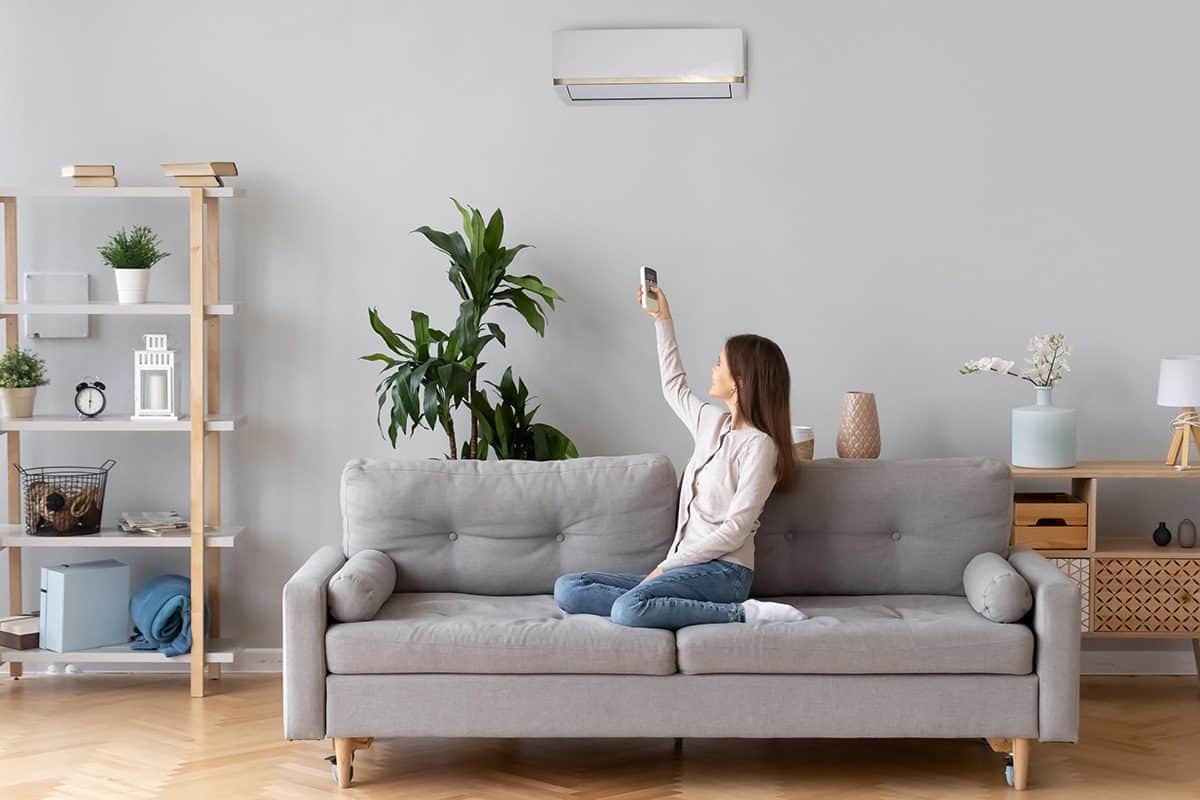The quality of your indoor air — especially when you’re staying at home for extended periods of time — is an important consideration. Many people don’t think twice before lighting a scented candle or using commercial cleaning products, however, even with fair to good ventilation, the chemicals from these items linger inside your home and clog up the air you’re breathing.

Poor air quality can contribute to health problems by triggering allergies and lowering the immune system, so it’s critical to ensure that your indoor air is as safe to breathe as possible. What does the CDC have to say about your indoor air quality, and what steps should you take next to improve it?
The Problem with Indoor Air
As much as 90% of exposure to fine particulates that are harmful to breathe occur indoors. According to the World Health Organization (WHO), this includes chemicals like pesticides, formaldehyde, toxic metals, and brominated flame retardants. If you burn paraffin wax candles, fragrance oils, incense, or use chemical air fresheners, there may be even more hazardous particles present in your home’s air.
Opening your windows and letting fresh air into your home when the weather allows is a good way to quickly ventilate your home. However, this doesn’t always cut it, and if you have allergies, bringing in pollinated outdoor air isn’t likely an option.
The Importance of Good Ventilation
The U.S. Centers for Disease Control (CDC) reports that the improper operation of HVAC systems are responsible for poor indoor air quality. Both ducted and ductless HVAC systems are designed not only to heat and cool a space, but also to remove harmful pollutants and contaminants from the air. This includes but is not limited to:
-
Carbon dioxide
-
Carbon monoxide
-
Bacteria
-
Mold
-
Mildew
-
Cleaning product residue
-
Pesticides
A well-maintained HVAC system can keep your home at a steady, comfortable temperature and free of harmful particulates. It can also help control indoor humidity, which has a significant impact on the overall quality of the air you’re breathing. Cold, dry air makes it easier for bacteria and viruses to spread.
Does Your HVAC System Need Maintenance?
It’s not always easy to detect when your HVAC system needs a check up. Look for these signs that your indoor air quality might be lower than it should be, or that your HVAC system needs maintenance:
-
Inconsistent airflow
-
Strange noises or foul odors coming from your vents or ductless heat pump
-
Visible dust and dirt around your vents or your ductless unit
-
Your actual indoor temperature is not what your thermostat is set at
-
Your utility bills have risen slowly over time, indicating inefficient use of energy
It’s also important to ensure that your HVAC system is thoroughly cleaned on a regular basis. When your system is dirty, dust and grime are pushed out of the vent and into the air you breathe. The longer your system goes without being cleaned, the more dirt and bacteria are being pumped into your air.
Contact N.E.T.R., Inc. Today for More Information About Improving Your Air Quality
At N.E.T.R., Inc., we understand the impact that indoor air quality can have on your health and wellness. We’re dedicated to providing our customers in Boston and surrounding areas in Massachusetts with comprehensive ducted and ductless HVAC cleaning and maintenance.
Contact us today at (781) 933-NETR to learn more or to request a consultation.

